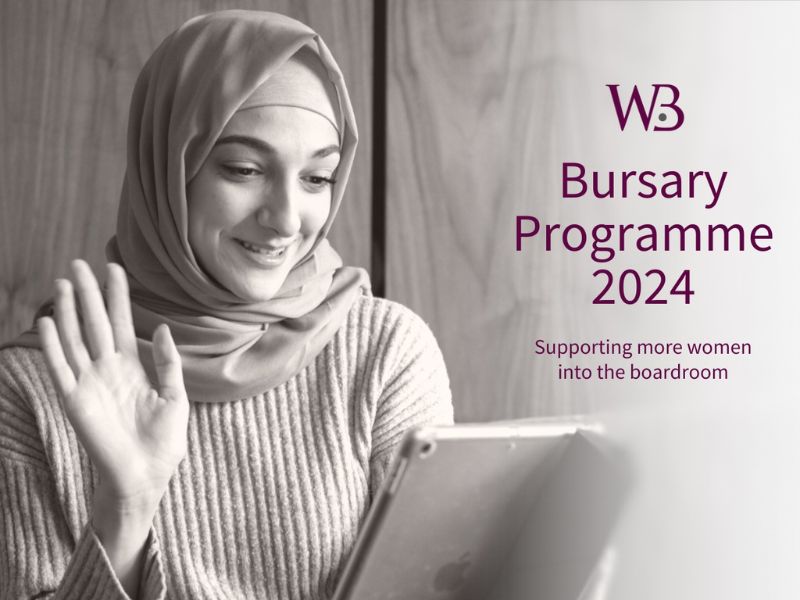
According to the FT’s 2018 ranking, women make up an average of 42 percent of MBA participants at the top ten US Business Schools and 36 percent at the top ten European schools.
Diversity in the classroom is essential as classrooms need to reflect a realistic and global working environment for participants, not only in terms of nationalities and age, but also gender.
One of women’s concerns about business education is that business schools are a male-oriented learning environment, with courses focusing on ‘hard’ topics such as quantitative statistics, managerial economics, management accounting or corporate finance. A predominantly male faculty may also deter some female candidates. Where the vast majority of professors are male, for example at Insead, with 83 percent of male professors, it may be perceived that the business school is not fulfilling their obligations towards diversity.
The average executive MBA participant is 38 years old. Both age and work-life balance are important issues for many women who may feel that they are either too young or too old for an MBA. Cultural differences can also be an important factor. As Min Lu, an MBAstudent at Audencia Business School, stresses, “if a Chinese woman goes for full-time study abroad, her concern is the delay of marriage and founding a family. In China, there are particular risks of age and gender discrimination for single women older than 28 years old. In addition, companies may discriminate against female employees who they feel are likely to go onmaternity leave, which is legally enforced for three to four months in China.”
Some women may deny themselves the opportunity of pursuing a MBA because of concerns about maintaining their work-family balance. Interestingly, women also tend to perceive study time as their personal time, so it is a sacrifice towards the family, whereas men tend consider study time as working time or a professional obligation.
According to the Forté Foundation, a nonprofit consortium of business schools, the Graduate Management of Admissions Council (GMAC) and a selection of surveyed companies, it takes four years to recoup the full return on investment (ROI)for an MBA. And the research also shows that women tend to be more worried about the ROI of doing a MBA than men. This may be linked to the fact that traditionally parents tend to encourage boys to take more risks in life than girls, who are still educated and brought up with the prospect of running a household one day.
‘Labyrinth of leadership’
One major challenge facing women is the ‘labyrinth of leadership’ (Eagly and Carli, 2007). Bias, prejudices, stereotypes and gender fatigue (when people assume that gender no longer matters) are affecting women’s situations in a professional environment. Sexism, unfair treatment, and discrimination may negatively influence women’s advancement in organisations. A McKinsey Report from 2016 found that women tend to get less challenging assignments than men. They are often victims of ‘mansplaining’ – meaning that men address women with the assumption that they know better than their female counterpart, irrespective of their background or qualifications. Only 67 percent of women report that they participate meaningfully in meetings compared against 74 percent of men surveyed. Receiving credit and recognition is thus impacted. Sheryl Sandberg, Facebook COO, stresses: “We need women at all levels, including the top, to change the dynamic, reshape the conversation, to make sure women’s voices are heard and heeded, not overlooked and ignored.” Gender equality is on the agenda of many organisations but sometimes we find that it is more ‘gender washing’ than a real commitment and concrete actions.
Professional and personal benefits
An MBA will enhance a woman’s career and earning potential. A Forté Foundation report from 2017 shows that 85 percent of female MBA graduates attribute their career advancement to their MBA. It also shows that within five years of graduation female MBA graduates see pay gains of 55-65 percent above their pre-MBA salary. However, the gender pay gap is still a huge issue, currently standing at approximately 15 percent for the same job within the same industry.
The personal network developed during an MBA can be significant to a graduate’s career. Research shows that networks and personal branding do have a major influence on career advancement, attributing 60 percent to performance, 30 percent to competence and 10 to luck. An MBA programme offers opportunities to meet inspirational people such as professors, guest and professional speakers as well as alumni. It is crucial to take full advantage of those.
Leadership and personal development are important aspects of an MBA, enabling the candidates to gain self-confidence and develop a “Yes, I can” attitude. But much research demonstrates a disparity in self-belief between men and women, women being generally less self-assured. According to my own teaching experience classroom discussions at the start of the term are still dominated by men. This may be explained by women’s deep-rooted lack of self-confidence, self-censorship, perfectionism, or the fear of appearing foolish. I find that this fades away as we advance in the programme. An MBA often provides women with the necessary business skills and self-confidence to break the ‘glass-ceiling’ in organisationsand reach the C-suite.
How to choose your MBA?
What should a woman look for in a business school? Beyond the rating and courses on offer, the level of support provided for administrative issues is important, especially if the MBA means that she (and potentially her family) will need to relocate abroad. Is her professional project supported by the program director and the business school and does the business school provide resources, for instance to help launch a business? These are important questions a candidate should ask.
Business schools are beginning to reach out to women more. Some offer scholarships for female leaders, instigate specific training programmes such as salary negotiation training and provide networks for female graduates and alumni.
Small steps like these will help to make this world a more equal place for women. Yet the projected year for professional equality in the workplace, according to the World Economic Forum, is 2186! We cannot wait this long. Women need to act now, believe in themselves and advance their careers as female leaders.
 About the author
About the author
Article provided by Prof Christine Naschberger of Audencia Business School








